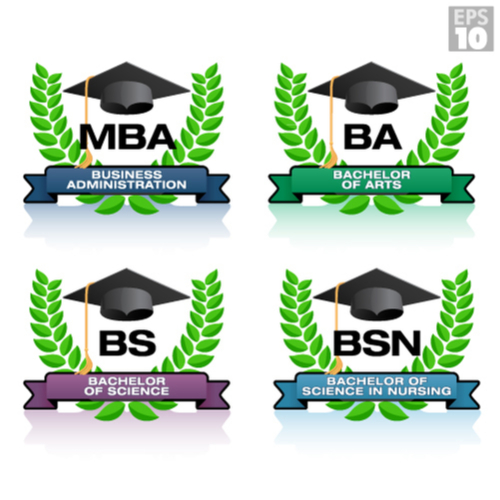
A bachelor of science in nursing is a valuable degree. A nurse with a BSN will have a wide variety of career options made available to them. One of those options is to pursue their education further, which will open up entirely new levels of opportunity. These additional opportunities include hospice and neonatal nursing, management and administrative positions, and critical care nursing, among many others. A master’s of science in nursing improves your overall qualifications for whatever nursing or administrative position best suits your needs and abilities.
An MSN is not the only option, however. A master’s degree in healthcare management is also a widely touted option. So, when it comes to opening up doors in the field of nursing, which is better: the MSN, or a master’s in healthcare management? For a nurse with a BSN, earning an MBA, MSN or master’s of healthcare management offers different pathways to advancing their career.
MSN Requirements
The Bureau of Labor Statistics predicts a fast rate of growth in jobs for nurses. It expects a 12% growth in the number of nursing jobs between 2018 and 2028. Nurses with an advanced degree will have the best job opportunities. The most in-demand graduate degree for nurses is the master’s of science in nursing, or MSN. This degree allows a registered nurse who already has a BSN to become an advanced practice nurse or nurse practitioner after achieving the proper licensure. The requirements to enter an MSN program include a BSN and one to three years of clinical experience as a nurse. You’ll also need to submit transcripts and one or more letters of recommendation. The program will require proof of your nursing license and registration. You may also need to complete a background check if you haven’t had one in the past three years.
What an MSN Program Entails
In an MSN program the nursing graduate student takes specialized courses in nursing. For example, they may take classes in gerontology or anesthesiology. They also do more in-depth clinical work, including working under the supervision of a doctor and providing specialty care to patients. MSN programs require the student to choose an area of specialty, such as nurse midwife or nurse anesthetist. The program takes one to two years to complete.
Concentration Areas for an MSN Degree
There are many concentration areas for an MSN degree, and these may vary somewhat by educational institution. One concentration area is gerontology, which is specialty care for the elderly. Another is pediatrics, in which the nurse would specialize in caring for newborn to teenage children. Some pediatric nurses get even more specific, focusing on neonatal care. This is the care of premature babies. In anesthesiology, nurses would learn how to administer forms of anesthesia, such as an epidural or a nerve block. Other concentrations in MSN programs include family practice, orthopedics, psychiatric nursing and clinical nurse specialists. A clinical nurse specialist provides acute primary care to injured or ill individuals.
Benefits of Earning an MSN for a Nurse
There are many benefits to going from BSN to MSN for a nurse. A nurse with an MSN can work more independently. In many states, they’re able to diagnose and treat patients. This includes the ability to prescribe medications. Nurses with an MSN may be able to take on a supervisory or managerial role. They can function as nursing supervisors, trainers or lead charge nurses within a department of a hospital. Earning an MSN also boosts the income potential for a registered nurse.
Master’s of Healthcare Management Degree Requirements

The number of jobs in healthcare management is expected to grow by 18% between 2018 and 2028. One way to get a job in this field is to earn a master’s of healthcare management degree. This degree is similar to a master’s in health administration, but there are a few differences. The master’s of healthcare management focuses on an interdisciplinary approach. It brings together business, law, human relations, communications and administrative principles. To apply for this degree, you’ll need transcripts and letters of recommendation. Most programs require applicants to take the GRE standardized test. However, some waive this requirement if you had a 3.5 or higher GPA for your recent bachelor’s degree. A person who already has clinical experience in the healthcare industry could transition to the business and management side of healthcare by earning this degree. A person doesn’t have to have a nursing degree to do well in this master’s degree program, but they will do better in it if they have some type of clinical degree and experience. The program requirements typically include a bachelor’s degree in a healthcare or laboratory science and a few years of relevant work experience.
What a Master’s of Healthcare Management Degree Program Involves
In a master’s of healthcare management degree program, a student will learn about business practices of the healthcare industry and how to apply those skills to the delivery of healthcare services in different settings. A lot of the classes in these programs involve customer service and patient satisfaction, survey design and how to keep employees happy and motivated. Marketing is also included in this master’s degree program.
Specialties and Concentrations in a Master’s of Healthcare Management Degree

The master’s of healthcare administration program is a good middle ground between the MSN and MBA option for advanced degrees. Some people find the MSN to be too clinical and healthcare-oriented, and others find the MBA to be too business-oriented. The master’s of healthcare management is a blend of these two options. Some programs have concentrations in their master’s of healthcare management programs, and others do not. When specializations are available, they typically include hospital management, long-term care management, quality assurance, communications, healthcare marketing and human resources administration.
Benefits of Earning a Master’s of Healthcare Management for a Nurse
A nurse who wants to focus more on how satisfied patients and families are with their healthcare services will be able to work toward that goal after earning this graduate degree. Nurses who have developed an aptitude for the business side of healthcare and how it affects patient outcomes should also consider this degree. A nurse who earns this degree could find themselves employed in the business side of the hospital or healthcare system where they work. This would provide a seamless transition because they would already know the ins and outs of how that particular organization does things. This degree could also allow a nurse to get out of the clinical aspects of care and move toward more of an office job with more consistent and less grueling hours.
MBA Program Requirements
A master’s of business administration (MBA) degree is usually a two-year program. To apply, you’ll need to take the GMAT or GRE standardized tests. Requirements also include transcripts, an essay and letters or recommendation. You need a bachelor’s degree to apply for an MBA program. However, your bachelor’s degree could be in any field. Most people entering an MBA program have some type of business experience. Earning the MBA sets you up for entrepreneurship or business leadership. For example, the CEO of Walmart has an MBA, and so does the COO of Facebook. Most MBA students don’t have a background in nursing or healthcare. A person who wants to stop doing clinical nursing and focus strictly on the business of nursing and healthcare delivery would do well in an MBA program.
What an MBA Program Involves
An MBA program involves taking courses in business theory and practice. Most programs also include an internship or a practicum. A practicum is a type of hands-on project that involves research and a presentation in oral and written form. A typical MBA program takes two years, but some intensive programs can be completed in one year. There are also MBA programs that are part-time. This accommodates the needs of working professionals who need to earn an income while working toward the MBA. Some employers will pay for their employees to earn an advanced degree like this, but some of those arrangements do require the worker to stay at the organization for a certain amount of time in order to gain access to tuition reimbursement benefits.
Concentration Areas for an MBA
Most MBA programs require students to select a specialty or area of concentration. Those options may include general management, international management, corporate strategy, finance, project management, healthcare management, entrepreneurship, human resources, business intelligence and operations and supply chain management. The natural choice for a nurse with a BSN would be the healthcare management concentration. However, nurses who have worked in orthopedics and have experience modifying devices to help people walk again might want to go the route of entrepreneurship. Nurses who want to be supervisors or recruit other talented nurses might prefer the human resources concentration. A nurse who wants to ensure that patients and providers have what they need may want to specialize in supply chain and operations management.
Benefits of Earning an MBA for a Nurse

A nurse who earns a MBA can advance into a management role in a large hospital or healthcare system. Although this would take them out of day-to-day clinical activities, their clinical background would help them make informed decisions that would benefit nurses and patients. Earning an MBA would also facilitate a change in the direction of a person’s career. Someone who has spent a while doing the physically and mentally exhausting work of a nurse may want a job that is less straining and emotionally draining. Working on the business side of healthcare may be the best option for their skills and experience.
The Master’s of Science in Nursing
As a general program, available in a wide range of institutions, the MSN has a lot to say for it. An MSN is a high-level qualification reflecting an advanced educational and academic career, as well as a certain amount of practical nursing experience. A nurse with an MSN is a well-qualified individual for a wide variety of nursing jobs that are at once very demanding and deeply rewarding. Neonatal nurses, for example, provide care for newborn infants in their first month of life. Hospice nurses deal with the unique demands and challenges of caring for individuals who are in their final stages of life, often coping with severe physical and mental challenges of their own. Such cases present with concerned family members, whose needs are almost as much a part of the nurse’s repertoire as the patient’s own. Critical care nursing is another such demanding field, in which one is confronted with people in a state of medical emergency on a daily basis.
A master’s of science degree in nursing is also a good qualification for management and administrative programs. It prepares nurses for leadership positions in the workplace by way of necessity: dealing with an intensive medical crisis frequently requires the ability to stay cool under fire and direct a team of professionals in what to do next. In this particular aspect, however, it may come second place to the more administratively focused master’s of healthcare degree.
The Master’s of Healthcare
The master’s of healthcare is unquestionably a prestigious and important degree within the healthcare field. It prepares an individual for a wide range of administrative and managerial career paths in the healthcare industry. If you are planning on pursuing a career that leads to policy and administration, the master’s of healthcare is a good option to pursue, particularly if it is combined with the expertise of a bachelor’s of science in nursing.
There are a variety of different programs that are frequently referred to as a master’s of healthcare. Many well-established and reputable medical institutions offer a master’s of science in healthcare administration. Other organizations, including a number of for-profit universities and online schools, offer an MBA program — a healthcare-specialized take on a master’s of business administration. Master’s of arts management programs also exist, some of which are extremely reputable.
If you’re entering into your graduate studies with a BSN, and you’re of a mind to pursue an administrative career path, a master’s of science in healthcare administration from a leading institution is your best bet to complement your nursing expertise. If, for whatever reason, that is not an available option, an MBA is a reputable and internationally recognized alternative. An MA in management is an admirable degree, but is not as heavily associated with industries like healthcare and medicine.
Conclusion
The Harvard Business Review goes into a detailed look at the overall merits of the MBA, and whether it can hold up to the rigors of the modern administrative position. The guidance personnel and other career professionals at your chosen school can help connect you with additional resources in determining which degree program is right for you; there are also professional associations offering resources for students.
After practicing nursing with a BSN, the MBA, MSN or master’s of healthcare management allows for more opportunities to advance into a management position, work with more independence or make a difference in the way that healthcare is administered to patients.
Related Resources:
- Top 30 Best Online RN to BSN Programs
- Top 35 Healthcare MBA Online Programs
- Top 20 Master’s in Healthcare Management Online / Online MBA Healthcare Administration
- Top 20 MBA Programs with a Specialization in Healthcare Management
- Top 35 Schools for a Graduate Degree in Public Health
- Top 50 Most Affordable Online Master’s in Nursing Education